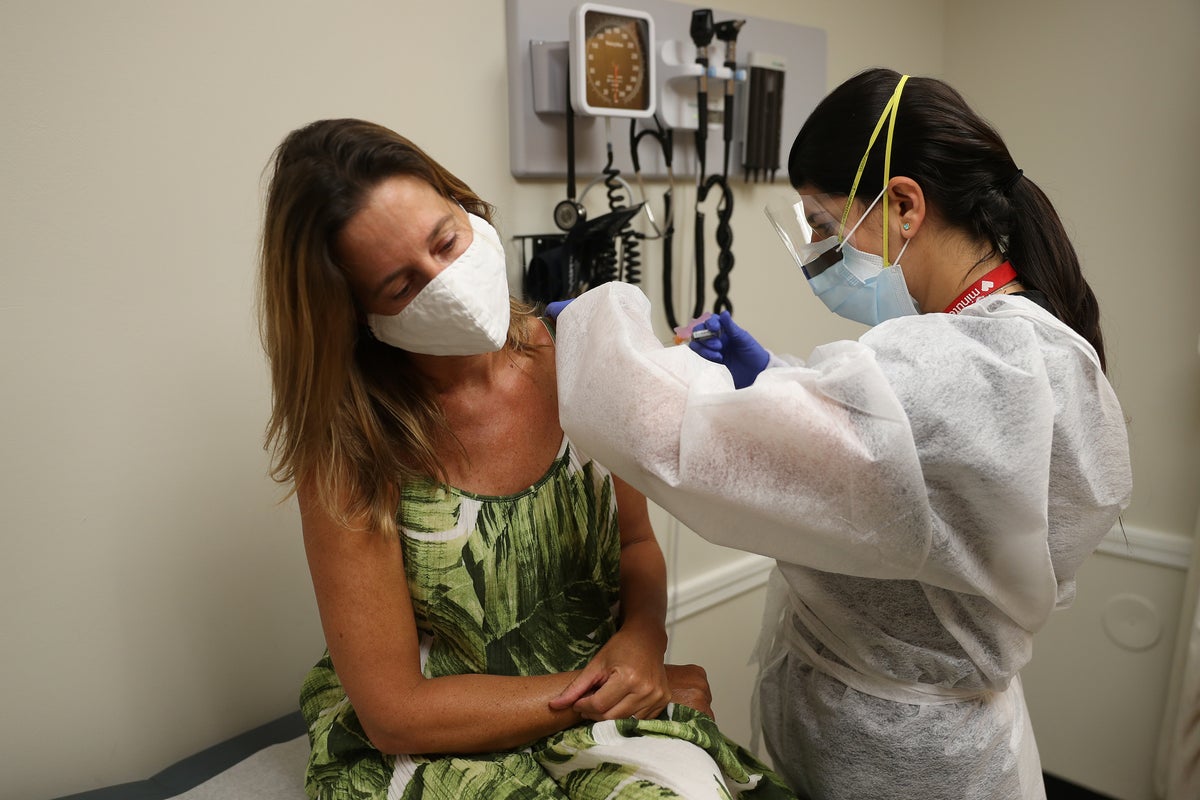Top Stories
Flu Season Arrives: Health Experts Urge Vaccination for High-Risk Groups

As the autumn weather ushers in the start of flu season, public health officials are urging specific high-risk groups to receive their vaccinations. Each year, influenza affects millions, with symptoms such as fever, cough, and fatigue. While many individuals recover without severe complications, others may face hospitalization or even death due to the virus.
Health experts highlight the importance of annual flu vaccinations, as the virus evolves each year. The Centers for Disease Control and Prevention (CDC) is closely monitoring the situation and has noted that the United States may experience a moderate flu season. This assessment is informed by data from the Southern Hemisphere, where the flu season has shown increased severity compared to previous years, potentially indicating a higher volume of cases in the U.S.
Vaccination Recommendations and Availability
For the 2025-2026 flu season, all vaccines will be trivalent, designed to protect against three primary strains: an A (H1N1) virus, an A (H3N2) virus, and a B/Victoria virus. Despite recent changes in vaccine policies, public health experts assure that flu vaccines remain accessible. They are widely available through pharmacies, doctors’ offices, public health clinics, and many workplaces, often at little or no cost.
Vaccination is particularly important for certain groups, including young children, older adults, pregnant women, and individuals with chronic health conditions. The CDC recommends that everyone aged six months and older receive the flu vaccine annually. This guidance is consistent with recommendations from the American Association of Pediatrics.
While the exact effectiveness of the flu vaccine will not be known until the season concludes, vaccination typically reduces the likelihood of needing medical attention for the flu by approximately 50%. Furthermore, even when there is a mismatch between circulating strains and the vaccine, vaccination still offers valuable protection against severe illness.
Staying Healthy During Flu Season
In addition to getting vaccinated, individuals can take everyday precautions to minimize the spread of flu and other respiratory viruses. These include practicing good hand hygiene, avoiding close contact with sick individuals, and staying home when unwell.
It is essential to note that individuals can receive the flu vaccine simultaneously with other vaccines, such as those for COVID-19, respiratory syncytial virus (RSV), and pneumonia, without compromising their effectiveness. If there are uncertainties regarding which vaccines are suitable, healthcare providers or pharmacists can offer guidance based on individual health status and age.
Vaccination not only protects the individual but also contributes to community health, especially for those who are more vulnerable. By staying informed, prioritizing vaccinations, and practicing healthy habits, everyone can contribute to reducing the impact of flu season in their communities.
For those who have yet to receive their flu shot, the time to act is now. Protecting oneself and loved ones is crucial as flu season approaches.
-

 Entertainment3 months ago
Entertainment3 months agoAnn Ming Reflects on ITV’s ‘I Fought the Law’ Drama
-

 Entertainment4 months ago
Entertainment4 months agoKate Garraway Sells £2 Million Home Amid Financial Struggles
-

 Health3 months ago
Health3 months agoKatie Price Faces New Health Concerns After Cancer Symptoms Resurface
-

 Entertainment3 months ago
Entertainment3 months agoCoronation Street’s Carl Webster Faces Trouble with New Affairs
-

 Entertainment3 months ago
Entertainment3 months agoWhere is Tinder Swindler Simon Leviev? Latest Updates Revealed
-

 Entertainment4 months ago
Entertainment4 months agoMarkiplier Addresses AI Controversy During Livestream Response
-

 Science1 month ago
Science1 month agoBrian Cox Addresses Claims of Alien Probe in 3I/ATLAS Discovery
-

 World2 weeks ago
World2 weeks agoBailey Announces Heartbreaking Split from Rebecca After Reunion
-

 Health4 months ago
Health4 months agoCarol Vorderman Reflects on Health Scare and Family Support
-

 Entertainment4 months ago
Entertainment4 months agoKim Cattrall Posts Cryptic Message After HBO’s Sequel Cancellation
-

 Entertainment3 months ago
Entertainment3 months agoOlivia Attwood Opens Up About Fallout with Former Best Friend
-

 Entertainment2 weeks ago
Entertainment2 weeks agoCoronation Street Fans React as Todd Faces Heartbreaking Choice





















